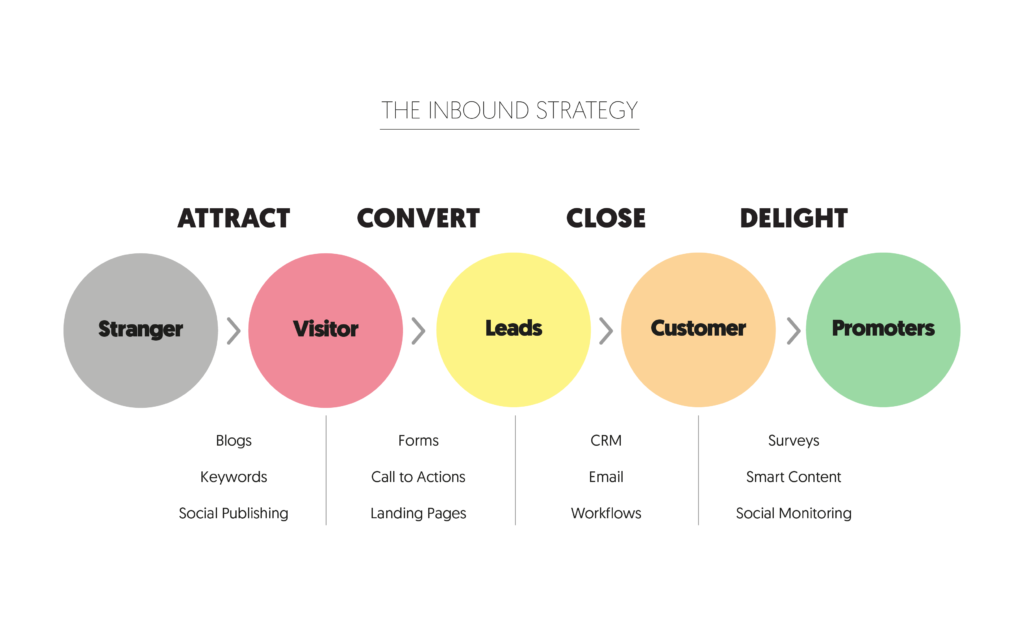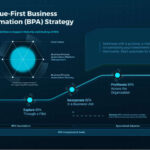Marketing teams handle many tasks daily. From email campaigns to social media posts, the workload can be overwhelming.
Automation can lighten this load, making work more efficient and effective. Automating marketing workflows isn’t just a trend. It’s a necessity in today’s fast-paced digital world. With the right tools and strategies, you can streamline processes, save time, and improve results. One of the key benefits of automation is workflow automation centralization, which allows for the consolidation of tasks and processes into a single, cohesive system. This can lead to better coordination and standardization across marketing efforts, ultimately leading to a more cohesive and impactful brand message. By embracing workflow automation centralization, businesses can stay competitive in an increasingly crowded digital marketplace. Automation can also streamline business notifications, ensuring that the right messages are delivered to the right people at the right time. This not only improves efficiency but also enhances customer experience by providing timely and relevant information. By centralizing and automating business notifications, companies can maintain a consistent and professional communication strategy across various channels.
Imagine fewer manual tasks and more focus on creativity and strategy. This blog will explore ten smart ways to automate your marketing team’s workflows. These tips will help you enhance productivity and achieve better outcomes. Get ready to transform how your team works and see the benefits of automation in action.

Credit: www.instagram.com
Table of Contents
ToggleAutomated Email Campaigns
Automated email campaigns streamline your marketing efforts and save valuable time. They help maintain consistent communication with your audience. This ensures that your messages reach the right people at the right time. Automation can personalize and schedule emails, making your campaigns more effective.
Personalized Email Sequences
Personalized email sequences tailor messages to individual recipients. They use data like name, preferences, and past interactions. This makes emails feel unique and relevant. Personalized sequences increase engagement and response rates. They foster a stronger connection with your audience.
Automated Follow-up Emails
Automated follow-up emails ensure timely communication with leads and customers. They are triggered by specific actions, like opening an email or clicking a link. This keeps your audience engaged without manual effort. Follow-up emails can nurture leads, guide them through the sales funnel, and boost conversions.
Social Media Scheduling
Social media scheduling is an essential strategy for marketing teams. It helps streamline tasks and ensures a steady online presence. Scheduling posts in advance saves time and reduces the risk of missing important updates. Let’s explore some smart ways to automate social media scheduling.
Consistent Posting
Consistency is key in social media marketing. Regular posts keep your audience engaged and informed. Automated scheduling tools allow you to plan your content calendar. This ensures you never miss a posting day. Set it once and let the tool handle the rest. Consistent posting builds trust and maintains audience interest.
Optimal Times For Engagement
Timing is crucial for maximum engagement. Different audiences are active at different times. Use analytics to identify peak times for your followers. Scheduling tools can post at these optimal times automatically. This increases the chances of your content being seen and interacted with. More engagement leads to higher visibility and better results.
Content Management Systems
Content Management Systems streamline marketing workflows with automation tools. These tools help teams manage content efficiently. Automate tasks like scheduling, publishing, and analysis to save time.
Content Management Systems (CMS) are crucial for managing digital content. They help streamline workflows and ensure consistency. A good CMS can automate many tasks, saving your marketing team valuable time. Let’s explore two key features of CMS: Automated Content Scheduling and Content Performance Tracking.Automated Content Scheduling
Automated content scheduling is a game-changer for marketing teams. It allows you to plan and publish content in advance. This means your team can focus on creating high-quality content. The CMS takes care of the rest. Set the date and time for each post. The CMS will publish it automatically. This ensures a steady flow of content. Your audience stays engaged. Your team stays on track.Content Performance Tracking
Content performance tracking helps you understand what works. A CMS can track metrics like views, shares, and comments. This data shows which content resonates with your audience. Adjust your strategy based on real insights. Improve your content over time. This feature is vital for long-term success. Know your audience. Meet their needs. Boost engagement and grow your brand.
Credit: blog.hubspot.com
Lead Generation
Lead generation is critical for any marketing team. Automating it can save time and resources while improving efficiency. Below are smart ways to automate lead generation workflows.
Automated Lead Capture
Automated lead capture tools gather information from visitors to your website. They can collect data from forms, chatbots, and landing pages. This saves your team from manual data entry.
Consider using:
- Forms: Integrated with your CRM to capture contact info.
- Chatbots: Engage visitors and collect their details.
- Landing Pages: Designed to convert visitors into leads.
These tools ensure you never miss a potential lead.
Lead Scoring Systems
Lead scoring systems rank leads based on their likelihood to convert. This helps your team prioritize high-quality leads.
Important criteria for scoring:
- Engagement Level: Interaction with your content.
- Demographic Info: Age, job title, industry.
- Behavior: Website visits, email opens, and clicks.
Use lead scoring to focus on the most promising leads. This improves conversion rates and makes efficient use of your team’s time.
Automating lead scoring can be done through CRM platforms. These platforms analyze data and assign scores automatically.
Customer Relationship Management
Customer Relationship Management (CRM) is vital for any marketing team. It helps to manage interactions with current and potential customers. Effective CRM can streamline workflows, enhance customer satisfaction, and boost sales. Automation can make CRM even more powerful.
Automated Customer Segmentation
Automated customer segmentation is a smart way to enhance marketing efforts. By dividing customers into segments based on specific criteria, teams can target their efforts more effectively. Automation tools can segment customers based on:
- Demographics
- Purchase history
- Behavioral data
- Engagement levels
These tools can quickly analyze data and categorize customers. This saves time and ensures accuracy. It also allows personalized marketing strategies for each segment. This leads to higher engagement and conversion rates.
Personalized Customer Journeys
Creating personalized customer journeys is crucial for customer satisfaction. Automated tools can help design these journeys. They can track customer interactions across various touchpoints. This includes:
- Website visits
- Email interactions
- Social media engagement
- Purchase behaviors
Based on this data, automation tools can send personalized messages. These messages can be tailored to each customer’s preferences and needs. For example, a customer who frequently buys sports gear could receive special offers on new arrivals. Personalized journeys enhance the customer experience and foster loyalty.
Automation in CRM brings efficiency and effectiveness. It helps in understanding customers better and meeting their needs. With automated segmentation and personalized journeys, marketing teams can achieve better results with less effort.
Analytics And Reporting
Analytics and reporting are vital for any marketing team. They help track performance, understand trends, and make informed decisions. Automating these processes can save time and increase accuracy. Let’s explore two key areas: real-time data analysis and automated report generation.
Real-time Data Analysis
Real-time data analysis enables your team to see up-to-the-minute insights. This means you can quickly adjust campaigns based on current trends. Tools that provide real-time analytics can transform how your team works. They can spot issues early and capitalize on new opportunities.
Using these tools, marketers no longer rely on outdated information. They make decisions based on the latest data. This agility can lead to better outcomes and higher efficiency.
Automated Report Generation
Creating reports manually can be time-consuming and prone to errors. Automated report generation simplifies this process. These tools gather data, format it, and deliver it in an easy-to-read format. Your team receives accurate reports without the hassle of manual compilation.
Automated reports can be scheduled to ensure consistent updates. This consistency keeps everyone informed. It also frees up time for more strategic tasks. Your marketing team can focus on analyzing the data instead of collecting it.
Team Collaboration Tools
Effective team collaboration tools enhance productivity and streamline workflows. They help marketing teams stay organized and aligned. These tools ensure clear communication and proper task management. Let’s explore some key team collaboration tools.
Project Management Software
Project management software is essential for marketing teams. It offers a centralized platform to plan, track, and manage projects. Teams can create tasks, set deadlines, and monitor progress. This keeps everyone on the same page. Popular options include Trello, Asana, and Monday.com. These tools provide visual boards and task lists. They make it easy to see who is working on what. This reduces confusion and ensures accountability.
Automated Task Assignments
Automated task assignments save time and reduce manual effort. They help assign tasks based on team members’ skills and availability. Tools like Slack and Microsoft Teams offer automation features. These tools can integrate with project management software. Automated assignments ensure no task is overlooked. They help prioritize work and manage workloads efficiently. This leads to better productivity and a more balanced team.
Ad Campaign Management
Managing ad campaigns can be time-consuming. Automation helps streamline the process. It ensures your team stays efficient and focused. This section explores smart ways to automate ad campaign management.
Automated Ad Placement
Automating ad placement saves time and reduces errors. Set rules to place ads based on performance and audience data. This ensures ads reach the right people at the right time.
Use AI tools to select the best platforms for your ads. These tools analyze data and make decisions faster than humans. Automated ad placement increases your ad’s reach and effectiveness.
Performance Tracking
Tracking ad performance manually is tedious. Automation simplifies this task. Use tools that gather data and generate reports. These tools provide insights on clicks, conversions, and ROI.
Automated performance tracking helps you make data-driven decisions. Adjust your strategy based on real-time data. This keeps your campaigns effective and responsive to changes.
How Can Centralizing Business Notifications Improve Marketing Team Workflow Efficiency?
By centralizing business notifications for workflow, the marketing team can streamline their processes and improve efficiency. Having all relevant notifications in one place allows for better organization, quicker response times, and more cohesive teamwork. This ultimately leads to a more effective and productive marketing strategy.
Chatbots And Customer Support
Chatbots have become an essential part of digital marketing. They provide instant customer support and improve user experience. They help businesses save time and resources. Let’s explore how chatbots can enhance customer support.
24/7 Customer Assistance
Customers expect support at any hour. Chatbots offer 24/7 assistance. They can handle common queries and provide immediate responses. This keeps customers happy and reduces wait times.
Here’s a quick overview of the benefits:
- Instant responses
- Consistent support
- Reduced workload for human agents
Consider integrating chatbots into your customer service strategy. They can handle FAQs, order status checks, and more. This frees up your team to focus on complex issues.
Lead Qualification Bots
Lead qualification bots help identify potential customers. They engage with visitors and gather key information. This helps your sales team prioritize leads.
Lead qualification bots can:
- Ask qualifying questions
- Collect contact details
- Segment leads based on responses
Here is a table summarizing their functions:
| Function | Benefit |
|---|---|
| Ask qualifying questions | Identify potential leads |
| Collect contact details | Build a database |
| Segment leads | Prioritize follow-ups |
Using lead qualification bots ensures your sales team focuses on high-quality leads. This improves efficiency and boosts conversion rates.

Credit: www.facebook.com
Frequently Asked Questions
What Are Marketing Team Workflows?
Marketing team workflows are structured sequences of tasks and processes. They help streamline marketing operations and improve efficiency.
How Can Automation Improve Marketing Workflows?
Automation can handle repetitive tasks, reduce errors, and save time. It allows marketing teams to focus on strategic activities.
What Tools Are Best For Marketing Automation?
Popular tools include HubSpot, Marketo, and Mailchimp. These tools offer a range of automation features to enhance marketing workflows.
Can Automation Increase Marketing Productivity?
Yes, automation increases productivity by speeding up processes. It allows team members to focus on more creative tasks.
Conclusion
Automating marketing workflows boosts efficiency and saves time. Implement these smart strategies. Your team will perform better and achieve more. Start with small steps and scale up gradually. Test and tweak your processes for best results. Stay updated with new tools and techniques. By consistently refining and improving your marketing workflows, you will be able to streamline your operations and maximize productivity. This is just one example of effective small business management strategies that can help your organization thrive in a competitive market. By staying agile and adaptable, your team can stay ahead of the curve and make the most of new opportunities as they arise.
Automation is a journey, not a one-time task. Keep learning and improving. Your marketing team will thank you. Happy automating!







